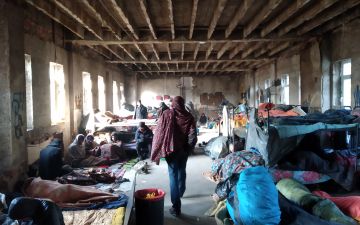In late August 2018, Vladimir Kovačević, a Bosnian investigative reporter, was heading home when he was attacked and beaten badly by two masked assailants. His experience is hardly unique in a country still riven by ethnic hatreds.
Between 2012 and 2017, a total of 266 attacks were documented, with an additional 41 attacks in 2018. These include physical attacks and death threats. No journalists have been killed—yet. But reporters live in growing fear and feel no support from the authorities. In fact, many believe police are involved in a cover up to protect the perpetrators, whether from local officials or organized crime.
Bosnian journalists face problems typical across region: lack of transparency in media ownership, pressure from politicians, and an ineffective judiciary. But the dangers in Bosnia are compounded by a deeply polarized political climate—the result of the country’s ethnic and territorial divisions—that exposes reporters to more xenophobic hatred and violence than anywhere else in the Balkans.
Journalist Dariusz Kalan listens to personal stories of reporters from Sarajevo, Banja Luka, and Mostar, and places their experiences in the larger context of growing corruption, the obscure relationship between politicians and criminals, and widespread gun availability in post-war Bosnia.




